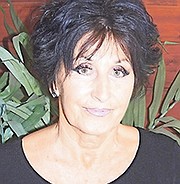By VICTORIA SARNE
By this I mean, how do you think of yourself? In a healthy, positive way, or beset with fears and anxiety? More importantly, who really wrote that script?
The script is important, because it contains ingrained beliefs which influence your sense of self-reflecting attitudes, behaviour, choices and your self-esteem. But you didn’t write it all by yourself. In fact, chances are most of the dialogue will have been written by other authors or influencers from your very earliest years; your parents, siblings, relatives, teachers and friends. The problem with this is that most of it is likely to be a self-perpetuating myth; a fabrication which you have subconsciously absorbed.
John Sharp, a psychiatrist and Harvard Medical School Professor, says: “This narrative is not the one that contains the objective facts of your lives; instead it’s the story you’ve been telling yourself about who you are and how everything always plays out. Some emotionally difficult scenes are over-included – the things you can’t let go of – and other scenes such as when things went well, are deleted. The worst part about a false truth is that it becomes a self-fulfilling prophecy and what we expect from ourselves in the future.”
Unfortunately, by the time we reach adulthood, so embedded in our subconscious is it, that it becomes our default mode especially in times of stress, conflict or any emotionally challenging circumstances. It’s our instinctive go-to set of thoughts until we learn how to recognise the particular reaction and question its validity. We need to become both author and editor to re-set the story-line. We need to ask ourselves why we react the way we do to certain prompts – usually the ones that make us feel uncomfortable or at a disadvantage. Do we feel scared, confrontational, want to run away; do we feel inadequate, not good enough, not capable?
There are a myriad catalysts and an equal number of reactions and we have to uncover their origins if we want to live more comfortably within our skins and be our best selves.
In my case, I grew up with an angry and abusive father who also demanded perfection from me academically. No matter what news I brought home about my achievements, it generated little praise but a whole lot of disappointment that I hadn’t done even better and then he would raise the bar another notch, and I would feel belittled, not worthy of notice and a failure.
I was well into adulthood before I understood that his attitude and demands had a resulting deleterious effect on my current attitudes and beliefs. Eventually I learned to re-examine my “story” and why my default mode was “I’m not good enough”; “I don’t know enough”; “I don’t really have anything of value to offer”.
Your narratives will be different as will your reactions, but similar in that many of us are repeating old learned behaviour patterns. Often there is more than one false underlying premise to identify. We have to examine the root of it - who burdened us with it and is it actually true of us. Those derogatory words or expectations aimed at us were never true and looking at ourselves in real time we can ask if are responding based on reality, or are we simply echoing a misguided or judgmental viewpoint from the past.
It’s hard to dislodge self-sabotage until we understand it is a learned inhibition planted by someone else and is not a natural facet of our character. We need to examine and edit our story line – be more self-aware about the origins of our reactions. We can nip those automatic responses in the bud by consciously cutting them out, then acknowledging our positive achievements with the same intensity; they have equal value.
Will you or I be able to completely eradicate our knee-jerk impulse to react in the same old way? Maybe. Not always. But we can certainly train ourselves to recognise it for what it is and discard it as an old habit that has never served us well.
• Victoria Sarne is an entrepreneur and writer. She headed a team to establish a shelter for abused women and children in Canada and was its first chairwoman. You can reach her at victoria.conversations@gmail.com, or visit www.lifelineswritingservice.com.





Comments
Use the comment form below to begin a discussion about this content.
Sign in to comment
OpenID